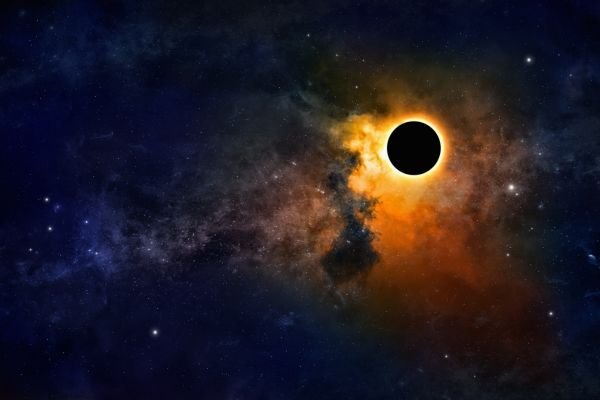Understanding Black Holes: The Enigmas of the Universe

Black holes are among the most fascinating and mysterious objects in the universe. These cosmic phenomena are not just a topic of science fiction, but a real and significant part of astrophysics. Despite their name, black holes are not empty spaces; rather, they are regions in space where the gravitational pull is so strong that nothing, not even light, can escape. This makes them one of the greatest universe mysteries and a focal point of black hole science.
What Are Black Holes?
A black hole is formed when a massive star collapses under its own gravity at the end of its life cycle. This collapse creates a singularity, a point in space with infinite density and zero volume, surrounded by an event horizon. The event horizon is the boundary beyond which nothing can return once it crosses into the black hole. The more massive the black hole, the larger its event horizon.
There are different types of black holes, categorized mainly by their size and mass:
- Stellar Black Holes: These are formed by the gravitational collapse of a massive star and are typically 10 to 20 times the mass of our Sun.
- Supermassive Black Holes: Found at the centers of galaxies, these black holes have masses ranging from millions to billions of times that of the Sun. The Milky Way, for instance, has a supermassive black hole called Sagittarius A* at its center.
- Primordial Black Holes: Hypothetical black holes that are thought to have formed soon after the Big Bang. These remain a topic of speculation and research in black hole science.
The Science Behind Black Holes
The concept of space-time anomalies is central to understanding black holes. According to Einstein’s theory of general relativity, a black hole warps space-time so intensely that it creates a “well” in the fabric of the universe. This warping affects everything around the black hole, including light and time itself.
Inside the event horizon, the gravitational pull is so strong that it bends the paths of objects and light rays, leading to phenomena such as gravitational lensing. As an object approaches a black hole, it experiences “spaghettification,” where tidal forces stretch and compress it. This dramatic effect is a key aspect of black hole science.
One of the most intriguing aspects of black holes is the singularity at their core, where current laws of physics break down. The singularity represents a point where densities become infinite, and our understanding of astrophysics and general relativity can no longer provide answers. This is why black holes are often referred to as universe mysteries.
Black Holes and the Universe
Black holes play a critical role in the evolution of galaxies and the universe. Supermassive black holes at the centers of galaxies are believed to influence the formation and growth of galaxies, including their shape and size. The interaction between a black hole and its surrounding environment can also result in powerful jets of particles being ejected at nearly the speed of light, impacting the interstellar medium.
Recent discoveries, such as the first-ever image of a black hole captured by the Event Horizon Telescope in 2019, have provided new insights into these universe mysteries. This image, showing a bright ring formed by light bending around the black hole, confirmed many predictions of general relativity and opened new avenues for astrophysics research.
The Future of Black Hole Research
The study of black holes is far from over. Scientists continue to explore questions such as what happens inside the event horizon, how black holes form and evolve, and whether they could be connected to other parts of the universe through theoretical concepts like wormholes.
The research into space-time anomalies and the quantum mechanics of black holes could lead to a deeper understanding of the universe’s most fundamental laws. Black holes remain one of the most compelling topics in black hole science, inspiring both scientific inquiry and the imagination.
Conclusion
Black holes are not just cosmic curiosities; they are crucial to our understanding of the universe. Their extreme nature and the space-time anomalies they create challenge our knowledge of physics and push the boundaries of what we know about the cosmos. As we continue to study these universe mysteries, black holes will undoubtedly remain at the forefront of astrophysics and scientific discovery, offering endless possibilities for learning about the nature of reality itself.




